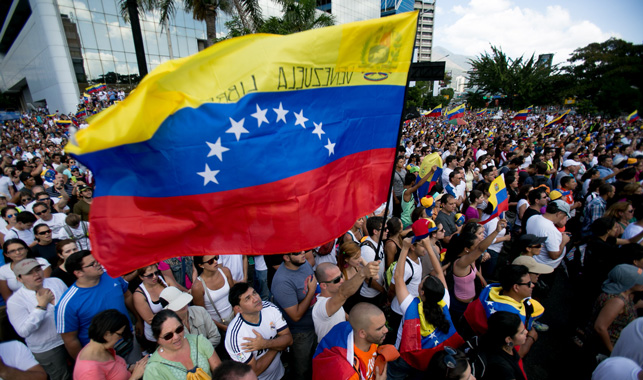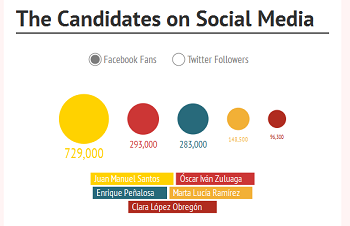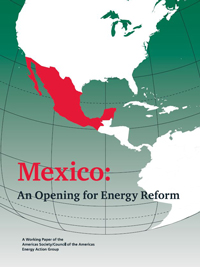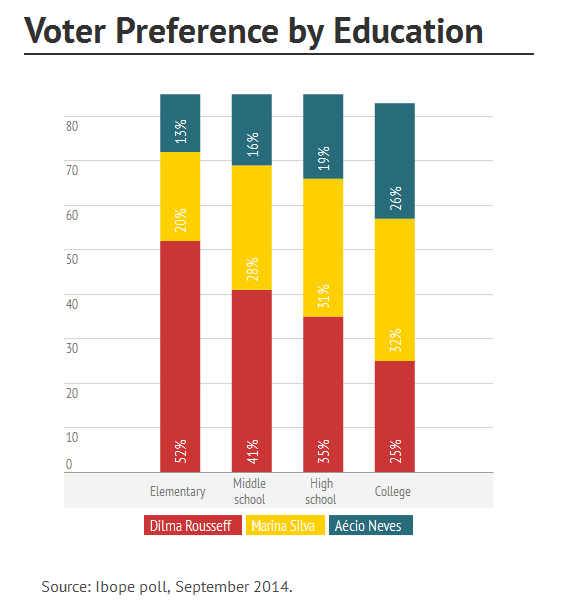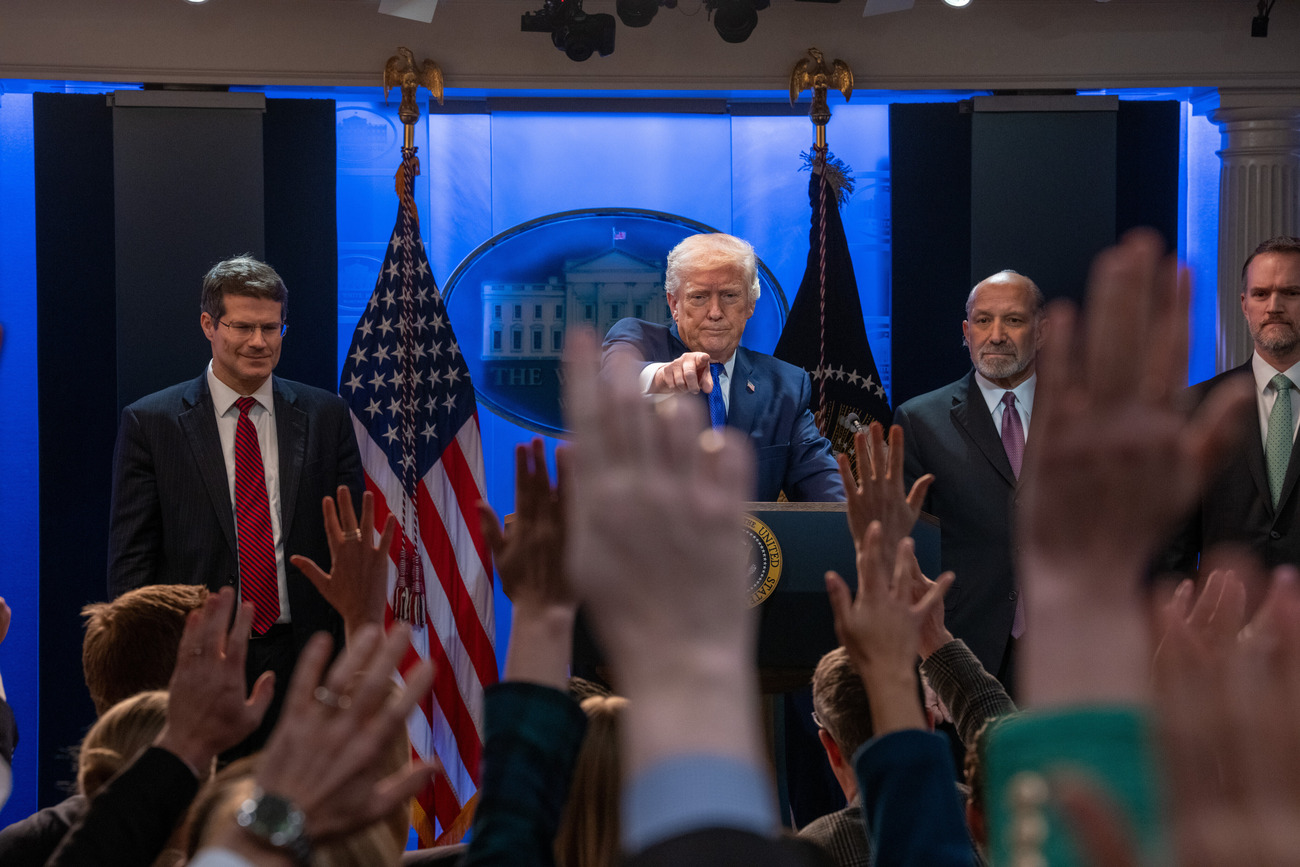Timeline: Top Latin American Moments of 2014
Timeline: Top Latin American Moments of 2014
See this year's news highlights from the region, from presidential elections to protests.
January 1, 2014: NAFTA’s Twentieth Anniversary
2014 marked the twentieth anniversary of the North American trade accord, which boosted trade in U.S. goods and services with Canada and Mexico from $307 billion in 1993 to $1 trillion in 2014. The accord also led to the quadrupling of trade between the United States and Mexico.
- Read Americas Quarterly articles by ex-President Ernesto Zedillo and Thomas F. McLarty about NAFTA’s anniversary.
- Access congressional testimony by COA’s Eric Farnsworth exploring NAFTA’s accomplishments and future.
February 12, 2014: Venezuela’s Protests Begin
In February, student protests in Tachira state sparked nationwide demonstrations, with calls to address the country’s economic and security woes. During the demonstrations, hundreds were arrested, including opposition figure Leopoldo López.
- Get a breakdown and timeline in AS/COA Online’s guide.
- Read about the international community’s response in a piece by AS/COA’s Christopher Sabatini.
- Hear what experts had to say about Venezuela’s future in the context of the protests.
March 11, 2014: Chile’s Presidential Inauguration
President Michelle Bachelet won a second, non-consecutive term during elections in late 2013. After taking office in March, she began implementing her reform agenda, from taxes to education.
April 6, 2014: Costa Rica’s Presidential Runoff
During the first round, Luis Guillermo Solís—who was polling in fourth—beat the governing party candidate Johnny Araya, who came in second. Given waning support, Araya dropped out of the race, and Solís won in a one-man runoff.
June 1, 2014: El Salvador’s Presidential Inauguration
In the first round of the country’s elections on February 2, Salvador Sánchez Cerén of the governing Farabundo Martí National Liberation Front (FMLN) earned 10 points more than his top rival, Norman Quijano. But the former FMLN guerrilla commander came out about one point short of what he needed to avoid a runoff. In the second round, only 6,400 votes separated Sánchez Cerén and Quijano in a hard-fought electoral fight that focused on security and economic concerns. Sánchez Cerén took office on June 1.
June 12, 2014: Brazil’s World Cup Begins
The quadrennial soccer tournament took place in 12 Brazilian cities, with four Latin American countries making it to the quarterfinals. In spite of initial mixed support among Brazilians for the games, the tournament was not met with protests on the scale of those in 2013.
June 15, 2014: Colombia’s Presidential Runoff
During the first round, President Juan Manuel Santos came in a narrow second, and ultimately won reelection by around 5 points in the runoff. This vote was marked by corruption allegations, a divided electorate, and neck-and-neck results.
- Read about what Santos’ victory means for Colombia’s peace process in a U.S. News & World Report article by AS/COA’s Adriana La Rotta.
- Understand the election’s international implications in a World Politics Review article by COA’s Eric Farnsworth.
July 1, 2014: Panama’s Presidential Inauguration
In a race charged with corruption allegations, Panama’s three top candidates found themselves charging toward a photo finish on May 4. Juan Carlos Varela came out the winner, despite the fact that he didn’t place first in any of three major polls released before election day. And even though Varela served as vice president at the time of the vote, a falling out between him and then-President Ricardo Martinelli meant Varela wasn’t the governing-party candidate. Instead, he represented the Panameñista Party. Still, some saw Martinelli playing a role as a fourth candidate, given his commentary during campaigns—including his tweets during a presidential debate. Varela took office July 1.
July 9, 2014: Central American Child Migrant Crisis
A wave of tens of thousands of minors from El Salvador, Guatemala, and Honduras crossing the U.S.-Mexico border reached a peak during the summer months, making immigration a national issue once again. The surge stemmed from rising violence and poverty in Northern Triangle countries, among other issues.
August 11, 2014: Mexico’s President Signs Secondary Laws to Implement Energy Reform
Mexico’s Congress passed landmark energy reform legislation in December 2013 that opened up the country’s oil firm Pemex and the Federal Electricity Commission to private investment for the first time in over seven decades. But it took secondary laws, inked by President Enrique Peña Nieto in August, to start the implementation process. Among other things, the change seeks to reverse declining oil production. On August 13, the energy ministry announced the Round One bidding process to be launched in 2015, which will give private and foreign companies the right to bid on contracts covering 109 blocks for exploration, 60 for production, and 14 in joint ventures with PEMEX.
- Watch an AS/COA interview with CEMEX CEO Fernando González exploring the impact of the energy reform.
- Access a video of a panel in which Mexican legislators debate the energy reform’s implementation and prospects.
- Get the facts on Mexico’s secondary laws for energy reform in an article by AS/COA’s Christian Gómez, Jr.
August 15, 2014: Panama Canal’s 100-Year Anniversary
One of the largest trade hubs in the Americas celebrated its centennial. Over 1 million vessels crossed through the Canal since it began operations in 1914.
- Read about the Canal’s significance to hemispheric trade in an article by COA’s Eric Farnsworth.
- Check out an AS/COA Online timeline covering the Canal’s history.
August 16, 2014: Victims Join Colombia’s Peace Talks
After the peace process began in 2012, for the first time victims of the country’s decades-long conflict participated in the talks in Havana, Cuba. It marked the first meeting between Revolutionary Armed Forces of Colombia leadership and victims.
September 26, 2014: 43 Students Go Missing in Mexico
In a case that led to dozens of arrests and shone a light on police corruption, 43 students went missing in Iguala, a city in the southwestern Mexican state of Guerrero. The town’s mayor, local police forces, and drug gangs were implicated in the disappearances, and the state governor resigned in October. But it was a November 7 press conference revealing drug traffickers had admitted to killing the 43 students that sparked both national and international outrage; when Attorney General Jesús Murillo Karam declared “Ya me cansé” (“Enough, I’m tired”) in response to reporters’ questions during the press conference’s Q&A session, #YaMeCansé quickly became a global Twitter trending topic as Mexicans took to both social media and the streets to express their frustration over corruption and criminality.
- Writing for Americas Quarterly, security analysts Eduardo Guerrero and Alejandro Hope debate whether or not Mexico’s security situation is improving.
- An Americas Quarterly blog by Arjan Shahani asks if Peña Nieto is facing a Mexican Spring.
October 12, 2014: Bolivia’s Presidential Election
Thanks to a change in Bolivian law, President Evo Morales ran for a third term. He won with a large margin against a fragmented opposition.
October 26, 2014: Brazil’s Presidential Runoff
President Dilma Rousseff won reelection, defeating Senator Aécio Neves by less than four points in one of the closest and most divisive elections in recent history. The race was shaken when candidate Eduardo Campos died in a plane crash, and his vice presidential pick Marina Silva took his place on the ballot. Ultimately, she came in third during the first-round vote.
- See an AS/COA Online infographic about the election.
- Read about the candidates’ approach toward the middle class and foreign policy in perspectives from COA’s Eric Farnsworth.
- Understand why last year’s protests didn’t translate into change at the ballot box in an article for Quartz by AS/COA’s Rachel Glickhouse.
November 20, 2014: Obama’s Executive Action on Immigration
After the midterm elections, U.S. President Barack Obama announced deportation relief for around 5 million undocumented immigrants. The move also expanded deferred action for youth and benefited highly skilled immigrants.
November 30, 2014: Uruguay’s Presidential Runoff
Ruling party candidate and ex-President Tabaré Vázquez won in both the first and second round votes. He defeated Congressman Luis Lacalle Pou, who became a candidate after a surprise primary victory.
- Read why the election represented a choice between two economic models in a World Politics Review article by COA’s Eric Farnsworth.
- Learn more about the two main candidates in a U.S. News & World Report piece by AS/COA’s Christopher Sabatini and Rebecca Bintrim.
December 17, 2014: The United States Reestablishes Relations with Cuba
U.S. President Barack Obama announces the United States will reestablish ties with Cuba, open an embassy in Havana, and loosen travel, financial, trade, and remittance restrictions.
- Learn more about the changes in U.S.-Cuba policy in an AS/COA guide.
- Read an open letter to Obama about improving U.S. relations with Cuba.
- See an action memo about ways the United States can support entrepreneurship in Cuba.
December 20, 2014: The FARC's Ceasefire Is Set to Begin
During peace talks on December 17 in Havana, Cuba, the Colombian guerrilla group declared an indefinite, unilateral ceasefire set to begin on December 20.







